|
(Photo courtesy of Wiki Commons - public domain photo)
This is the third in a series of blog posts offering brief information on every constitutionally-elected Principal Chief of the Cherokee Nation since 1828. It is said that Lewis Downing was born sometime in 1823, in eastern Tennessee. He attended the Valley Town Mission school in North Carolina. He seemed to demonstrate evidence of being a spiritual person from a young age. At age 15, Downing, along with his family of origin, traveled the Trail of Tears in the attachment conducted by The Rev. Jesse Bushyhead. He is listed on the Drennen Roll of 1852, the census of new arrivals to Indian Territory from the East. Downing was ordained a Baptist minister in the new territory. The people of First Baptist Church in Adair County chose him as pastor following Rev. Bushyhead’s death. In 1845, he was elected as a Cherokee senator. He also served as a Cherokee tribal delegate to Washington, D.C. During the Civil War, Downing served as a chaplain to the 1st Cherokee Mounted Rifles regiment. On 1 August 1866, Downing was serving as Assistant Principal Chief when Chief John Ross died. He served by convention until October of that year. The council then appointed William P. Ross to fill the position until the next election. On 5 August 1867, Downing was elected Principal Chief and was re-elected in 1871. Lewis Downing died of pneumonia on 9 November 1872. He is buried in the Ned Adair cemetery in Mayes County, Oklahoma. ***Bryan D. Jackson’s new release, Chattahoochee Rain (ages 12 and up), is available for purchase for the holidays. It is a historical fiction account that paints a portrait of events during the months leading up to the Treaty of New Echota and features some of Bryan’s direct ancestors.
0 Comments
(Photo courtesy of Wiki Commons - public domain photo)
This is the second in a series of blog posts offering brief information on every constitutionally-elected Principal Chief of the Cherokee Nation since 1828. Note** William P. Ross was elected twice by the Cherokee Council, not by the Cherokee people at large, but is nevertheless included in this list. William Potter Ross was born 28 August 1820 near Lookout Mountain, Tennessee. The nephew of Principal Chief John Ross, William Ross was well-educated and devoted to his uncle. He was enrolled in various mission schools of the day, educated at Princeton University and the College of New Jersey, and took on numerous roles of responsibility within the Cherokee Nation. Among these were his appointment to clerk of the Cherokee Senate and editor of the Cherokee Advocate. He wrote amendments to the Cherokee constitution and, while Chief, was respected as a speaker, writer, and statesman. When his uncle died in the summer of 1866, leaving the office of Principal Chief vacant, Ross was appointed to fill the position. Ross served as a lieutenant colonel during the Civil War, on the side of the Confederacy. He did little to speak out against slavery following the Emancipation Proclamation and, after Lewis Downing’s administration, was appointed yet again in 1872. During this time in office, Ross was viewed by many traditional Cherokees as supporting and encouraging European influence to take over the nation. His second known wife was his first cousin, Mary Jane Ross. William Ross died at Fort Gibson on 20 July 1891. He is buried in Citizens Cemetery, Fort Gibson, Oklahoma. ***Bryan D. Jackson’s new release, Chattahoochee Rain (ages 12 and up), is available for purchase for the holidays. It is a historical fiction account that paints a portrait of events during the months leading up to the Treaty of New Echota and features some of Bryan’s direct ancestors. (Photo courtesy of Wiki Commons - public domain photo)
This is the first in a series of blog posts offering brief information on every constitutionally-elected Principal Chief of the Cherokee Nation since 1828. John Ross, or Cooweescoowee (“Mysterious Little White Bird”) was born in the Cherokee settlement known as Turkeytown, Alabama, on 3 October 1790. His father was Scottish and his mother Cherokee. Schooled at the Kingston Academy in Tennessee, Ross became a prominent leader of Cherokee resistance to invading colonial influence. Federal agents spent much time trying to bribe Ross into approving Cherokee land sales, which Ross resisted and reported. Ross became chief in 1828. The Treaty of New Echota, signed in 1835 and ratified in 1836, ceded (by a minority Cherokee faction) Cherokee lands to the United States Government. Ross led the resistance against the treaty, but to no avail. He led the western Cherokees across the Mississippi River to Indian Territory during the Trail of Tears (TOT) in 1838-39. Ross’ first wife, Quatie, died on the steamboat "Victoria," on a TOT river route 1 February 1839. When most of the Cherokees were forced to the new Indian Territory, Ross helped create a new constitution and was elected Principal Chief for the new territory in 1839, and held that office until his death on 1 August 1866. John Ross is buried in Ross Cemetery, Tahlequah, Cherokee County, Oklahoma. ***Bryan D. Jackson’s new release, Chattahoochee Rain (ages 12 and up), is available for purchase for the holidays. It is a historical fiction account that paints a portrait of events during the months leading up to the Treaty of New Echota and features some of Bryan’s direct ancestors. Kimberly Teehee and Principal Chief Chuck Hoskin, Jr., Cherokee Nation
(Photo courtesy of the Cherokee Phoenix) Article 12. That the Indians may have full confidence in the justice of the United States respecting their interests, they shall have the right to send a deputy of their choice, whenever they think fit, to Congress. (Treaty of Hopewell, 1785) Article 7: The Cherokee nation having already made great progress in civilization and deeming it important that every proper and laudable inducement should be offered to their people to improve their condition as well as to guard and secure in the most effectual manner the rights guaranteed to them in this treaty, and with a view to illustrate the liberal and enlarged policy of the Government of the United States towards the Indians in their removal beyond the territorial limits of the States, it is stipulated that they shall be entitled to a delegate in the House of Representatives of the United States whenever Congress shall make provision for the same. (Treaty of New Echota, 1835) These two articles from Cherokee Nation and United States history demonstrate that the Cherokee Nation does, and always has had— since the treaty’s ratification—the right to a delegate to the United States Congress. Recently-elected Cherokee Nation Principal Chief, Chuck Hoskin, Jr., put the wheels in motion for this to happen, and Cherokee Nation citizen Kimberly Teehee has been nominated for this vital position. Ms. Teehee, among her many accomplishments, is an attorney who served in the Obama administration as a senior policy advisor for Native American affairs. Cherokees have the right person equipped for this task, ready to go. This is about doing the right thing. Congress, simply, needs to do the right thing here. I have collateral ancestors who helped develop the Treaty of New Echota, and two of them were signers. The Treaty of New Echota was essentially a resignation by members of what became known as the Ridge Party. They eventually developed in opposition to the Ross Party, named for then Chief John Ross and his followers, who were set against any relinquishment of Cherokee lands under any circumstances. The Ridge Party members were not always in favor of giving in to the U.S. Government, but, as more Cherokee begin to perish due to colonial encroachment, Cherokees like my great, great, great uncles, Robert Rogers, William Rogers, and Johnson Rogers, began to understand the futility of battling the government, fearing that the entire tribe would fall victim to genocide. For men like Major Ridge (who was murdered for his role in the treaty) his son, John, and William Rogers (a victim of attempted murder for his role), tribal sovereignty was more important than tribal location. This will, understandably, always be a source of tension and debate among Cherokees. I cover some of this history in my forthcoming novella, Chattahoochee Rain. I think my ancestors would be pleased that Chief Hoskin has taken this step and no doubt proud of Kim Teehee for accepting the nomination. The House of Representatives needs to do what’s right. My hope is that the Great Spirit will guide our congressmen and women to consider the massive scope of what is at stake here. Do you suspect that you have Native American ancestry? Does your DNA “prove” that ancient family story? Are you “part Cherokee?” Was your great, great-grandmother a princess? With the rise of DNA testing companies mirrored by a hostile political landscape, one way that some organizations have lined their pockets has been to play to a person’s emotions regarding fragmented family stories of Native American (especially Cherokee) ancestry. With the 2020 election looming, the continued caricature, mocking, misunderstanding, and ignorant dismissal of our people and way of life is certain. Here are some thoughts on genetic testing that I hope will stimulate intelligent thinking on the subject for the genuinely curious. 1. Does DNA testing or blood quantum verify Native Identity? No. DNA testing is irrelevant to tribal affiliation and blood quantum is a colonial invention, having little or nothing to do with how most reasonable Natives view themselves within the context of their tribe or communities. Granted, a host of tribal persons still use race (despite centuries of race-mixing) as a pretext for their own arguments regarding “we versus them,” which is essentially reverse discrimination, but most recognize and acknowledge that Native identity is less about race and more about common relations. FYI – the United States government classifies only three entities by blood quantum: Equestrians, canines, and Native Americans. Now, I am at one with the animals so I don’t mind being compared to horses and dogs, but the criminality in this is the obvious distinction between Native persons and other humans. There is a long, complicated, and emotionally unforgiving story behind this concept that has to do with genocide and patriarchal governments. 2. Is there a difference between race and ethnicity? Yes. Race, for the most part, has to do with a person’s physical traits—especially skin color. Technically speaking, I am of mixed-racial origin. My pigmentation, however, is white; therefore, my race is white. Ethnicity is about ancestry and the culture with which one identifies. I am of Caucasian and Cherokee Indian ancestry. I claim both. From a spiritual and communal perspective, I identify more with my Cherokee ancestors. They reached out to me. I am not “part” Cherokee; I am Cherokee. 3. So, DNA is not relevant to tribal affiliation? Again: no. I am not qualified to go into detail regarding DNA and genetics. Yet, in simplest terms, individuals receive one-half of each parent’s DNA. Mitochondrial DNA (mtDNA) comes from our mother, the Y-Chromosome (YCh) from our father. These are the two main genetic markers used in Native American DNA analysis. Essentially, due to race-mixing over the past couple of centuries, mtDNA and YCh’s sometimes do not get past the generational lines to show up in Native American (in my case, Cherokee) DNA analysis. They get “washed out,” depending on the gender and geographic location of the ancestor(s). Moreover, Native identity is more about fidelity than biology. True, one either has Native ancestors or one does not but fidelity and adherence to relationships typifies Native kinship. With respect to genetic markers, a person with a single Native ancestor has Native ancestry, yet, others with numerous Native ancestors (as in my case) might possess no recordable Native DNA. Absence of evidence does not indicate evidence of absence. Furthermore, tribal fidelity means understanding and appreciating from whence one came, being of service to one’s people (Native community or society), and participating in an ethic of care, which indicates one’s desire to leave things better than one found them for the next seven generations. None of that has anything to do with DNA testing; therefore, DNA is irrelevant to being truly Native. 4. What are some other specifics of being Native? Values – the honoring of and participation in, shared values of one’s Native society Enrollment – tribal enrollment or citizenship when eligible; enrollment in legitimate heritage organizations when possible; and, at the very least, knowing which ancestors were enrolled and when (perhaps the most important because we "stand on the shoulders" of our ancestors) Traditions – maintaining the integrity of sacred traditions such as language, beliefs, the honoring of ancestors, medicine, diet, and others Seventh generation gifting – passing on all of the above for future generations So, remember: It is not about the markers. It’s about birthright and fidelity. Seeking to classify persons in terms of parts rather than the sacred whole only breeds misunderstanding and confusion. Furthermore, the whole "great-grandmother princess" idea infuriates Natives (and Cherokees in particular) because there was no such thing and it deminishes the hard-won reality of our ancestors' experiences. If you suspect Native ancestry but are still having a hard time unearthing specifics, seek the assistance of a tribal genealogist or historian specific to the tribe with whom you think you might be affiliated. Bald eagles, catching the winds above our home on Friday, April 12, 2019
Bald eagles. A creature that knows how to soar. Do you? In the above photo, four bald eagles glide on the winds above our home. There were actually five but I was only able to capture four with my iPhone camera. Wonderful things happen to me in spring. Eagles, for example. My wife, forever in tune with nature and the animals and birds, who are our brothers and sisters, alerted me to this scene. The times that I have soared in life—they have almost all been kicked off by a mild, lovely spring. If you’re a young person, I would encourage you to be like these bald eagles: Find some wind, hop aboard, and ride. School will be out soon. How will you soar this summer? Perhaps you will find a job that really winds your watch. Or, maybe you’ll discover a volunteer opportunity that becomes a life-long interest. When I was a dog trainer, I was a senior trainer, meaning that I trained other trainers. One of my favorites was a young man still in high school. He learned from me and began earning part-time money during the summer, doing something he loved! Stranger things have happened. Be open to the possibilities. Let spring glide you toward a useful summer. It’s also a great time to curl up with a good book. Okay, I admit: For people like me, almost anytime is good to curl up with a good book. Speaking of books, I have one coming out sometime this year. Chattahoochee Rain is about a 13-year-old girl, Annie, who lives in the old Cherokee Nation. She is trying to soar; that is, she’s trying to grow up in a way that will make her and her family proud. Are you doing that? Don’t grow up too fast! (It’s overrated, adulthood). Take your time this spring. Learn to soar. Most important of all, be you. Don’t let others guide your thinking. And don’t forget to read! Bryan Seattle Sunset, 2010
Reflection. It's something I do, partially because it is who I am but partially because my health status forces it. I have reflected lately more on what I have than what I don't, a rarity for me. See, I'm a godforsaken pessimist. I set out to be as different from my father, may he rest in peace, as I could be with respect to outlook, but life has gotten the better of me more times that I can count. Despite this reality, I can always see the sun peeking from under the thick, burnt volumes of clouds. If I could not, I would have been dead long ago. In the photo above, an eagle is taking flight (upper right, one o'clock). The pic was taken from the ferry to Bainbridge Island almost a decade ago, before my wife and I moved out here. Speaking of Penelope, she and the American Bald Eagle have a sisterhood. It is powerful. I would advise the curious to question that sisterhood only at their own peril. Like the eagle, my wife soars, and for that I am grateful. When she's not riding the breeze, surveying the landscape, she's swooping in to manage her roost. To her misfortune, my declining health clouds her roost. I am currently in the midst of yet another challenge. As I bob and weave, I am cognizant of how the beauty of life - represented here by a seraph who never lets me down and dear friends that appear when most needed - belies the ugliness of my constant and significant physical breakdowns. I am reminded of the Seattle sunset and how blessed I am to have seen so many. I have had a lot more yesterdays and tomorrows than I deserve. Despite it all, I celebrate the peace and mystery of this holiday season. And I cherish the one with whom I have ridden the breeze during my more robust days, as well as those friends who, both two and four-legged, extend the kindness and compassion that Jesus of Nazareth and those like him professed. As a seminary professor said in the vesting room at my graduation so many years ago, "These are great days!" My wonderful friend, Rebecca (Becky) Goss, Cherokee Nation
My excellent friend, Becky, is called to listen. More than once, she has helped me negotiate some complicated Cherokee “stuff.” Each time, she listened without a single interruption. An enrolled member of the Cherokee Nation, Becky is good at listening for the key points of your struggle. We need more listeners like her. Listening involves a presence; we are either present for the other person or we are not. Becky generates a real presence, and the lucky talker knows that he or she is being heard. How can more of us be like Becky? The art of listening involves the emptying of the self, enough that the other person is validated. Becky validates because she responds from a place of love and empathy. I have another dear friend who has invested significant emotional time and energy over the years in someone that, as long as I’ve known him, can’t seem to stop talking about himself. He is his favorite all-time subject. He cheats the oxygen in the room. Unfortunately for all concerned, nobody has ever bothered to tell him that he talks too damn much. He refuses to shut up, especially if he might be called on to demonstrate the slightest intimacy skill. His self-adulation prevents any meaningful dialogue for my friend, and it has been hard to watch. Due to this man’s behavior, my friend can never fully share, and almost always comes away feeling shut down. It is often said that listening is a skill. I think that it is just as much a choice. It is a choice that we make, to be available for the other person in a way that so many today are unavailable. Be like Becky. Please, oh please, don’t be like my other friend’s emotional investment. Replenish the precious oxygen in the room by answering the call to listen. With my good friend, Todd Byrd, 2013
Are you in the “responding” business? A friend and colleague, Todd, is in the responding business. We are roughly the same age, and have a few things in common. Years ago, when we worked together, Todd and I expressed a mutual desire to maintain interpersonal relationships only if they meant something to the other person. That is, reciprocity was important to both of us. We both confessed frustration regarding persons who seemed to enjoy initiating relationships and, at some point, dropping off the radar, as if the relationship meant nothing to begin with. I am blessed in so many ways, and one of them is the knowledge that Todd continues to respond, to hold our friendship in high regard. I think we are called to respond; that, yes, I see it as a calling in and of itself. Being called to respond is a sign of an educated heart. Whether we are responding to another person or a situation, the measure of our integrity is often revealed in how we acknowledge or reciprocate. Are you being called to respond to someone or something? It’s important to know that we always have the choice not to respond. We have the right to remain silent. If that is the choice, let us hope that we know exactly why we’re not responding, for our sake and for the sake of others. For those to whom we wish to respond, and who choose to respond to us, let us be thankful. The Most Rev. Michael Curry, courtesy of www.episcopalchurch.org
During the recent royal wedding, the Presiding Bishop of the United States, The Most Rev. Michael Curry, did what he was called to do. He did, simply, preach the love of Jesus as he understood it. Despite rather pathetic efforts to alter perceptions, Bishop Curry honored God, the bride and groom, and the church he represents. It is unclear to me how he might have made things less than they should have been. Now, I never thought I would be one to defend an Episcopal bishop; not by a long shot (not that this gentleman needs it). The Episcopal Church and I have had our battles. There was a time when elements (two bishops, especially) of this entity of the Christian church treated me with unfounded disrespect, and in ways that shut me down as a human being. That was a long, long time ago. Since those days, I was invited to be a staff member at a wonderful Episcopal parish in North Carolina, one with which I had been intimately familiar since childhood. During that incredible period of my ministry, I had the pleasure of meeting Michael Curry and visit with him—clergy to clergy, listening to his thoughts about how Jesus enters our lives and empowers us to bring the sacred to the lives of others. He did this with humility and positive exchange, being more than open to one ordained in another tradition. We laughed together that day, and I realized he was in possession of something frequently absent among those in the ordained ministry: a wonderful sense of humor. One of the things that impressed me was how different Curry was—in the ways of the heart—than some of those bishops I had previously encountered. Bishop Curry struck me as genuine, loving, and he expressed a gift in the pulpit uncommon to most that I had witnessed in the Anglican way. That is to say, the man had soul. There has been an interesting array of responses to Curry’s message at the royal wedding. Some have been negative; condescending. Listening to preachers critique other preachers is a bit like watching the little boy peeing into the hurricane: The self-imposed splash-back is entertaining enough; it just doesn’t qualify as serious scholarship. “There but by the grace of God, go I….” In this age where so many strive to be “correct,” particularly in their respective theologies, I can’t help but wonder what has happened to the concept of perspective. All points of view are valid, and it isn't always about being right, but being faithful. I am reminded of how far we have yet to go. Believe it or not, some folks aren’t always harboring an agenda. Some do what they do for the sake of the Gospel, despite the wretchedness of others. |
Yona Ambles"YOH-nuh" (yonv) means "bear" in Cherokee. Thanks for visiting! Archives
January 2024
|
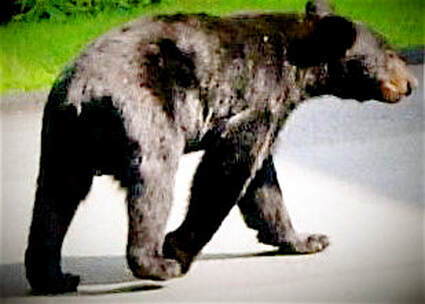
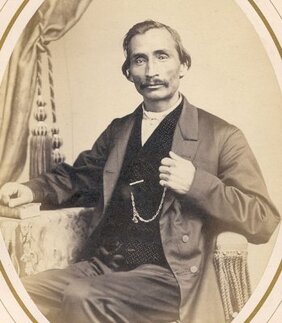
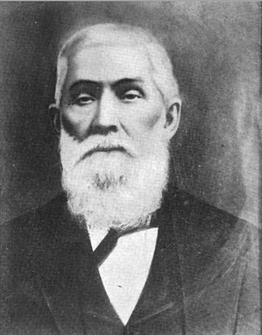
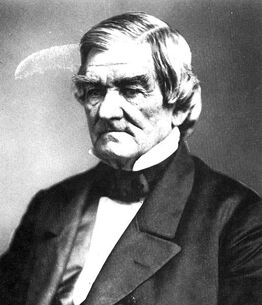
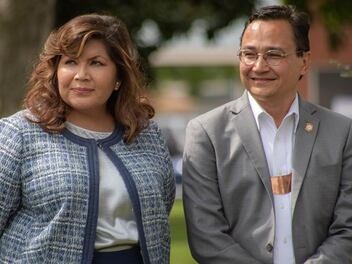
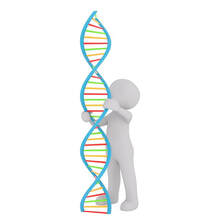
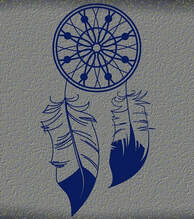
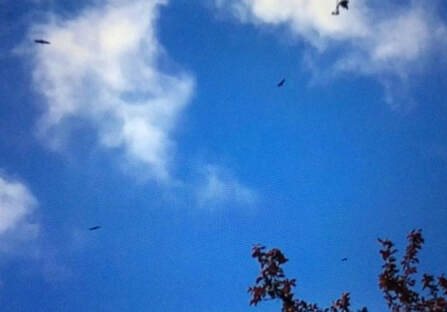

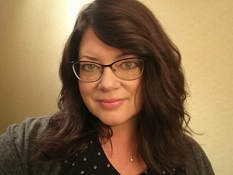
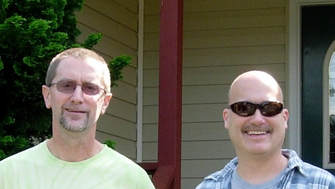
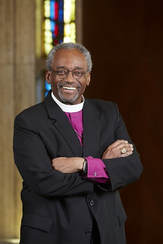
 RSS Feed
RSS Feed
